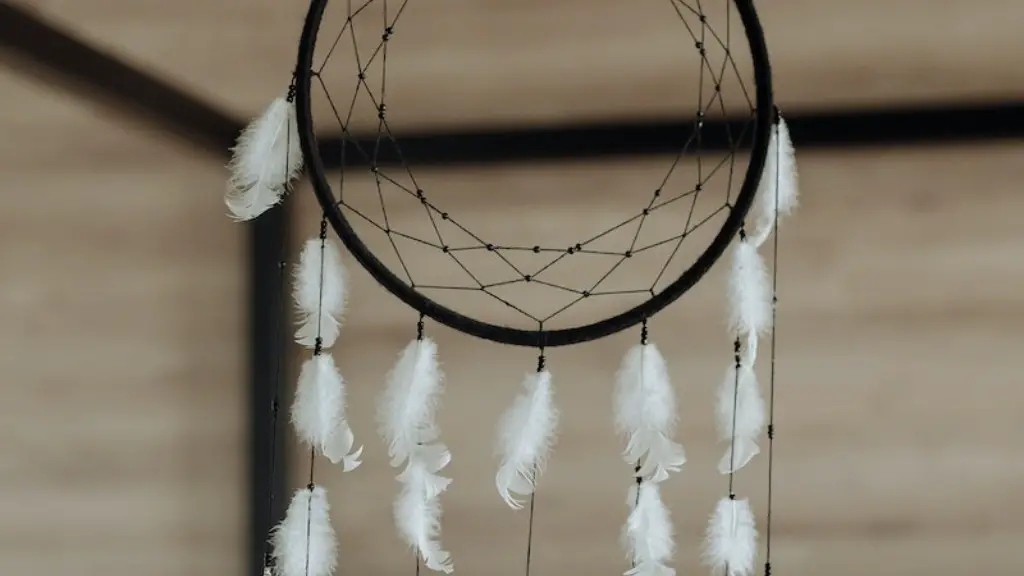We all know that babies sleep a lot, but do they dream? It’s a question that has puzzled parents and scientists for generations. There is no one definitive answer, but there are some interesting theories out there.
Some scientists believe that babies do dream, but their brainwaves are different from those of adults, so we can’t interpret what they’re dreaming about. Others believe that babies’ brains are not developed enough to create the images and stories we typically associate with dreaming.
So what do babies dream about? We may never know for sure, but it’s fun to imagine. Maybe they dream about the things they see and experience during the day. Or maybe they dream about a time when they were just floating happily in the womb. Whatever the case may be, it’s clear that dreaming is an important part of our lives, and it’s something that starts early on.
From what researchers can tell, babies do dream. Their sleep patterns are similar to adults’, with REM (rapid eye movement) sleep occurring several times during the night. And brain activity during REM sleep is similar to brain activity during wakefulness.
Can babies have dreams and nightmares?
It turns out that infants and babies don’t start having vivid dreams until around the age of two. Only when their brains develop well past this stage, will babies start having dreams and nightmares. And even later to retain them in their memory.
It’s normal for babies to cry in their sleep. It’s usually because they’re in a light sleep cycle and they’re reacting to a dream.
What kind of dreams do newborns have
Though we don’t have an exact answer to when people begin to dream, researchers believe children are dreamless until they have a clearer understanding of the world around them. This is because babies’ brains lack the maturity and experiences to conjure up dreams. Neuroscientists have theorized that as children grow and gain more experiences, their brains begin to develop the ability to dream. So, while we may not know exactly when people begin to dream, it is thought that it is a process that starts in childhood and develops over time.
It is interesting to note that newborns are able to dream from the moment they are born. In fact, they dream more actively in their first two weeks of life than they ever will. Studies even show that dreaming could begin several months before birth. This is an amazing ability that we have and one that should be cherished.
Why do babies smile so much in their sleep?
Rapid eye movement, or REM, sleep is a normal part of the sleep cycle. Adults typically experience three to five periods of REM sleep each night. During REM sleep, the eyes move rapidly back and forth, and dreams often occur. REM sleep is associated with improved mood, memory, and learning.
Babies think from the time they are born, but their thoughts are based on sensations rather than words or images. This is because they are not yet capable of specifying everything they perceive with words or images. These first thoughts are called protothoughts.
Is it harmful to let a baby cry itself to sleep?
It can be tough letting your baby cry before bedtime, but it’s actually not harmful to their development in the long run. So if you’re struggling with the decision, know that you’re not alone. There are no negative consequences to your baby’s attachment, mood, or overall development if you let them cry themselves to sleep. Instead, this can be a chance for your baby to learn how to self-soothe and get themselves to sleep – skills that will serve them well throughout their lives.
You’ll know it’s time to stop allowing your baby to fall asleep while you’re holding them when they start to intentionally smile at you, around 6 to 8 weeks. At this point, it’s time to try to start having baby nap independently.
When should I stop holding my baby all the time
Some babies crave the warmth, comfort, and squeeze of being held in the first few months. They may like to be held for what seems like all the time. This phase doesn’t usually last beyond 4 months of age.
Babies are little sponges who take in everything around them. They may seem unsophisticated at first, but they are actually absorbing and understanding a lot. They notice everything that adults and children say and do, and they learn a lot through their senses.
Do newborns know their dad?
Babies can recognize their parents pretty early actually – as young as 4 days old. By making eye contact with your baby during feeding times, cuddle sessions and throughout the day, you’re helping your child memorize your face and learn to trust you.
You are your baby’s first and best teacher. At birth, your baby is starting to recognize your voice, face, and smell. They will learn best from you and you can help them learn by talking, singing, and cuddling with them.
Do babies know kisses are affectionate
The finding, published in the journal Nature Neuroscience, could have implications for understanding how humans form and maintain social bonds, and could help researchers develop new ways to treat social disorders such as autism.
The researchers found that when children and adults see two people sharing saliva, whether through kissing or sharing food, a specific brain signal is activated. This signal is different from the signals that are activated when people see other types of interactions, such as shaking hands or hugging.
The researchers believe that this signal may be important for helping young children and even babies to determine whether two people have a strong relationship and a mutual obligation to help each other. The finding could have implications for understanding how humans form and maintain social bonds, and could help researchers develop new ways to treat social disorders such as autism.
Though they may not appear to be even conscious you are present, it is still important that you are physically available and close to them during a night terror. One recommended option is to wake your sleeping child fifteen minutes before the time they usually have a night terror.
Can babies get lonely?
It’s normal for babies to feel scared and lonely when they’re separated from their caregivers. This is because they’ve been used to hearing a heartbeat and being held constantly. If you put them down for long periods of time, they may cry and seem agitated. But don’t worry, this is normal. Some babies will go down easily and seem content to be alone. Just give them some time to adjust.
The excited baby look of wide open eyes and round little mouth is a cue for parents to engage in playtime. This is a great way for baby to bond with parents and develop skills.
Conclusion
We don’t really know if babies dream since they can’t tell us about their dreams. But researchers have found that during REM (rapid eye movement) sleep, babies’ brain activity is similar to adults’ brain activity during REM sleep. So it’s possible that babies are dreaming during REM sleep.
Whether or not babies have dreams is still up for debate. Some scientists believe that they do based on brain activity, while others believe that they don’t because they don’t have the capacity for long-term memories. However, there is no definitive answer yet.





